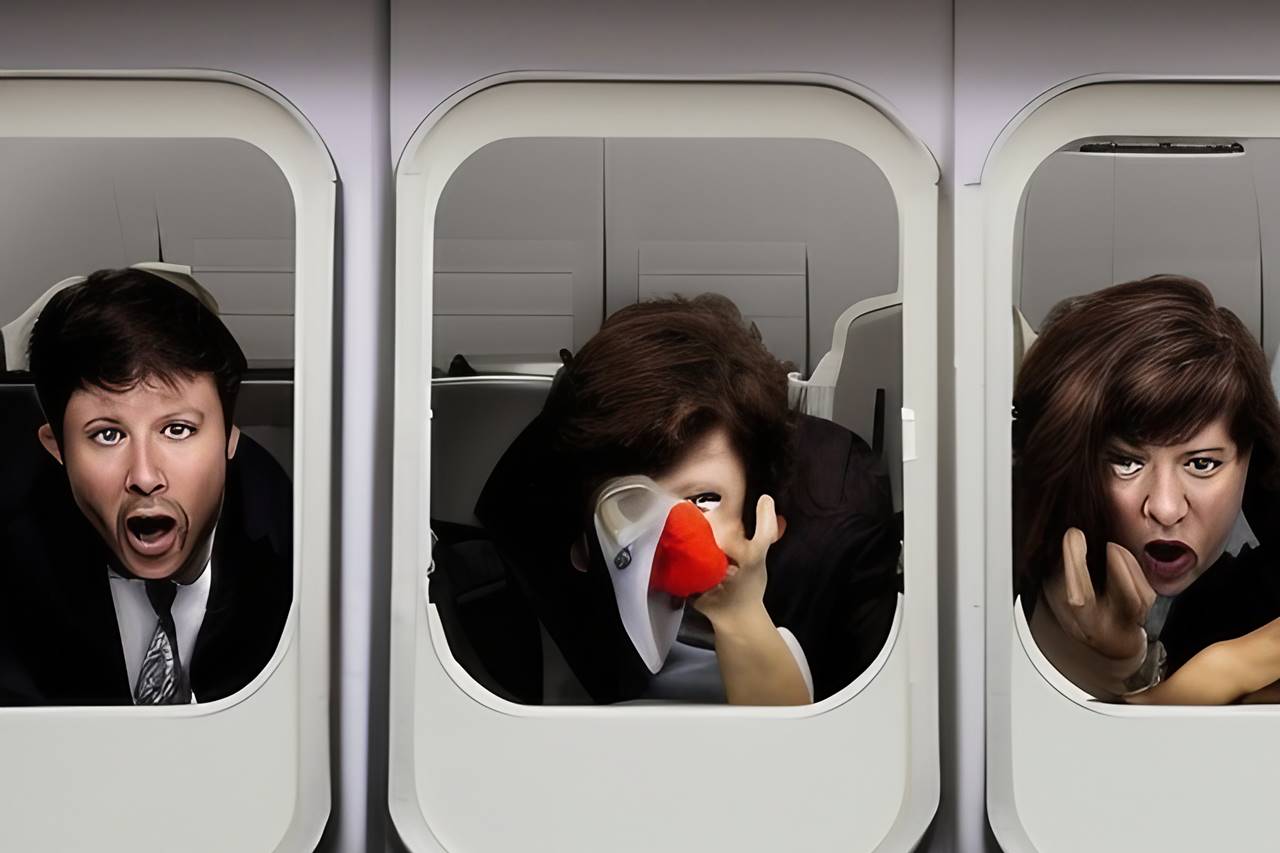If you’ve ever flown on an airplane, you know that not all passengers are well-behaved. From disruptive children to uncooperative adults, there are a variety of ways in which passengers can make the flying experience less than enjoyable for everyone involved. So, how do you deal with unruly passengers on airplanes?
Learn More: How to Answer: Tell Me About a Time You Dealt with a Difficult Customer
In general, it’s best to try to be understanding when dealing with noisy passengers on airplanes. Everyone handles travel differently, and sometimes the stress of flying can lead to bad behavior. By keeping your cool and following some useful tips, you can hopefully make the best of a difficult situation.
Contents

How Flight Attendants Deal with Rude and Troublesome Airline Passengers
Here are some tips for handling unruly passengers on airplanes:
1. De-Escalate The Situation First
Dealing with rude passengers on airplanes can be a difficult situation for everyone involved. The first and most important thing to do is to de-escalate the situation. The surrounding environment on an airplane is very cramped and can be very loud. This can easily offend someone who is already feeling uncomfortable. It is important to remember that people react differently to situations like this.
Some people may become aggressive or violent, while others may just want to get away from the situation as quickly as possible. It is important to try to calm the person down and defuse the situation before it gets out of hand.
This can be done by speaking in a calm and collected voice, using positive body language, and making sure that you do not make any sudden movements. If the situation does escalate, it is important to have a plan in place so that everyone on the plane can remain safe.
2. Get Help from Other Passengers or Flight Attendants
Passengers and flight attendants can offer assistance which is the best way to handle noisy passengers on airplanes. This is because they are the people who are most likely to be able to help you calm the situation down or remove the passenger from the plane if necessary.
It is important to be as calm and polite as possible when asking for help, to increase the likelihood of getting what you need. If there is a problem with a passenger, it is also a good idea to let the other passengers know what is happening so that they can be aware of the situation and help if necessary.
There are some people who may not want to get involved, but there are usually at least a few people who will be willing to help out in a situation like this. Usually, on airplanes, the best way to handle rude passengers is to ask for help from those around you.
3. Establish Firm and Powerful Boundaries
When it comes to troublesome passengers on airplanes, it’s important to be firm and assertive in your boundaries. This means that you need to be clear about what you will and will not tolerate from the individual in question.
If they are being disruptive, let them know in no uncertain terms that their behavior is unacceptable and that they need to stop immediately. If they continue to behave in this manner, involve other passengers or flight crew members to help you deal with the situation.
It may also be necessary to involve law enforcement if the individual refuses to comply with your request. In any case, it’s important to remain firm and powerful in your response so that the individual understands that their behavior is not acceptable and will not be tolerated.
4. Identify Actions that Lead to a Physical Attack
The best way to handle a rude passenger is to identify what leads to a physical attack by implementing your situational awareness. There are several factors that can contribute to an altercation on an airplane, such as alcohol consumption, personal space issues, and cultural differences.
By being aware of these potential triggers, you can help to defuse the situation before it escalates. Additionally, it is important to remain calm and avoid confrontation.
This can be difficult when dealing with an angry or intoxicated individual, but it is important to remember that reason and logic will not always prevail in these situations. If the situation does become physical, it is important to protect yourself and others by using whatever means necessary to get away from the attacker.
In most cases, flight attendants are trained in handling these situations and can provide assistance. However, if you find yourself in a situation where there is no assistance available, it is important to trust your instincts and do whatever is necessary to ensure your safety.
Learn More: How To Apply Caribbean Airlines Flight Attendant Hiring

5. Offload and Hand-Over To Security
Offloading a passenger usually involves removing them from the plane and giving them a refund for their ticket. In some cases, the passenger may also be banned from flying with that particular airline in the future. Handing a passenger over to security usually means calling the police or airport security to manage the situation.
Passengers who are offloaded and handed over to security usually react with disbelief and anger. They may also be feeling embarrassed and humiliated. In some cases, they may become violent or aggressive. It is important to remain calm and try to defuse the situation as much as possible.

Summary
Unruly passengers can ruin your flight. If you find yourself in a situation with any troublesome passenger, it is important to stay calm and take action. Follow these tips to handle a troublesome passenger on an airplane. First, try to de-escalate the situation by talking calmly to the passenger.
If that doesn’t work, or if the passenger becomes physical, you may need to take more drastic measures. Try to get help from other passengers or crew members, and if all else fails, call for security. By following these tips, you can hopefully avoid any dangerous or uncomfortable situations during your flight.
Learn more: Flysafair Cabin Crew Requirements And Qualification